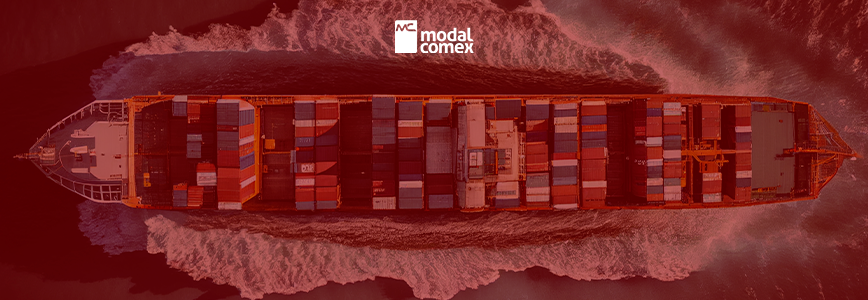Slowdown in cargo transport may indicate a period of recession.

Shipping Companies Cancel Dozens of Trips Amid Economic Crisis and Declining Demand. Maritime transport companies are canceling dozens of voyages on the world’s busiest routes during what would traditionally be peak season, signaling the ongoing economic crisis affecting businesses as inflation impacts international trade and consumer spending.
Sharp Shift from Last Year
The cancellations in October mark a significant shift from a few months ago when limited shipping space drove up freight prices and delivered record profits for carriers. In October 2021, companies like Walmart and Home Depot chartered their own ships to bypass port bottlenecks and meet the surge in import demand.
Freight Costs Plummet
Freight rates for crossing the Pacific have fallen 75% compared to the same period in 2021. The maritime shipping sector now faces a demand slowdown, with major retailers canceling orders from suppliers and intensifying efforts to reduce inventories. FedEx recently announced it would cancel flights and park cargo planes due to the sharp decline in shipment volumes. On Thursday, Nike reported that its inventory in North America was 65% higher than in the same period in 2021.
Global Economic Deterioration
The worsening global economic conditions, influenced by factors such as the war in Ukraine and factory shutdowns in China, have dealt a severe blow to global trade. The International Monetary Fund (IMF) has repeatedly lowered its forecast for global GDP growth this year. Consumer prices are rising rapidly in the U.S., Europe, and other parts of the world.
Reduced Maritime Trips
In response to declining demand, maritime trips have been reduced. In September, container capacity offered by ship operators in the Pacific fell by 13%, equivalent to 21 ships capable of carrying 8,000 containers each, compared to 12 months ago, according to maritime data companies Xeneta and Sea-Intelligence.
Cancellations Surge
For the two weeks starting October 3, about 40 scheduled trips from Asia to the U.S. West Coast and 21 trips to the East Coast were canceled, according to data from the two companies and customer notices. Normally, at this time of year, an average of two to four trips per week are “blanked,” the industry term for cancellations.
Carriers are also increasingly canceling trips on major routes from Asia to Europe, the data show. “In the first week of October, a third of the previously announced capacity will be blanked, and in the second week, about half,” said Peter Sand, chief analyst at Xeneta. “The pace of the slowdown in recent weeks has been very strong.”
Peak Season Disrupted
Typically, the period between the end of summer and the beginning of autumn in the Northern Hemisphere is the busiest time of year for the largest carriers as retailers and importers stock up before the holiday shopping season.
Freight Rates Drop
Daily freight rates for transporting a single container across the Pacific now average $3,900, down from $14,500 at the beginning of the year and over $19,000 in 2021, according to the Freightos Baltic Index.
Major Carrier Cancellations
Mediterranean Shipping Co., the world’s largest container carrier by capacity, has recently canceled voyages, including six ships from China to Los Angeles and Long Beach. Some carriers are hesitant to share data on canceled trips to avoid exposing network disruptions to competitors. Trips can be scrapped due to port congestion, scheduling problems, or declining demand.
Increasing Fleet Capacity
The expansion of the container ship fleet will increase capacity over the next two years, potentially exerting further downward pressure on freight rates as more space becomes available.
Rising Capacity
Maritime container shipping capacity is expected to rise by 4% this year, 8.8% in 2023, and 9.7% in 2024, according to London-based maritime consultancy Braemar. Since early 2020, about 1,056 ships have been ordered, compared to 688 ships ordered between 2015 and 2019.
Economic Signals and Future Outlook
“The global economy has sent mixed signals this year, and our outlook for future demand is uncertain and moderate,” said Jonathan Roach, a container shipping analyst at Braemar. “Overcapacity is likely to become an issue from mid-2023 to 2024 and potentially beyond.”
Overcapacity leads to price wars among operators, pushing freight rates down. Container ship operators faced heavy losses for nearly a decade from 2008, prompting sector mergers. Currently, the top six maritime freight operators carry more than 70% of all containers worldwide.
Costs and Challenges
Freight rates on major shipping routes remain above pre-pandemic levels, and the largest operators have ample cash reserves to weather a short-term economic slowdown. However, operational costs for carriers are also rising. Fuel prices for ships have declined from record summer levels but remain above late 2019 levels. Port operators are also charging more for ships, passing higher energy costs onto maritime carriers.
“The cost of electricity, particularly in Europe, is significant because cranes and other heavy equipment operate on electric power,” said Tiemen Meester, chief operating officer of ports and terminals at DP World, a global port terminal operator headquartered in Dubai.


